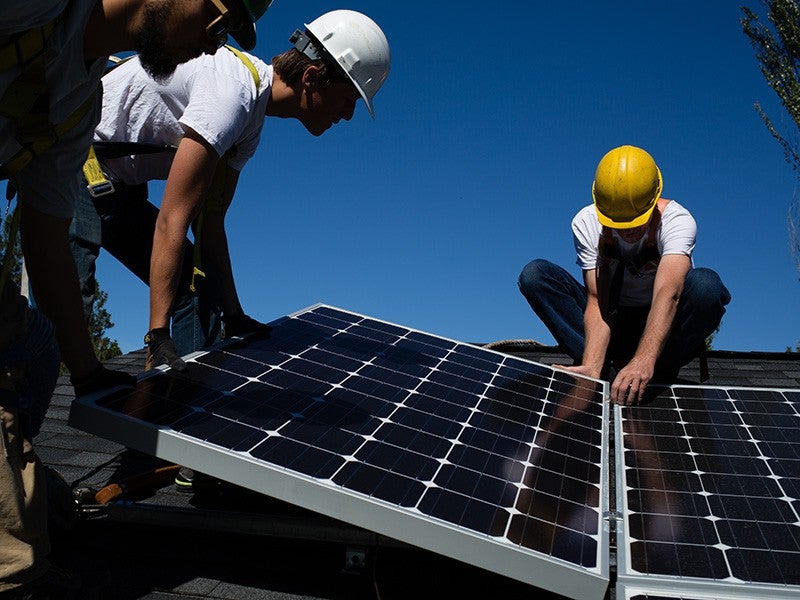Montana Rejects Changes to Net Metering In Win for Montanans, Local Jobs, and Clean Energy
Victory
—NorthWestern Energy’s anti-solar proposal rejected by unanimous vote
Contact
In a vote of 5-0, the Montana Public Service Commission supported clean energy jobs and the right of Montanans to harness clean electricity from their own solar panels. The Commission rejected NorthWestern Energy’s proposal to end net metering, implement a separate rate class, and impose punitive demand charge rates for rooftop solar customers. That proposal would have penalized Montana families who invest in rooftop solar and sent solar jobs to other states. Instead, the Commission preserved net metering that allows current and future solar customers to offset their electricity purchases by receiving credit when they send clean energy back to the grid. NorthWestern Energy is by and far Montana’s largest electric utility.
“Montanans value self-reliance and resilience, two important benefits of rooftop solar and other distributed generation systems,” said Andrew Valainis, Executive Director of Montana Renewable Energy Association. “The ruling today preserves and protects those values. We are thrilled at the ruling, which is a win for Montanans and for small businesses in a growing industry.”
“Today, Montana joins other states in recognizing that customers have the right to produce and consume electricity they generate from the free sunlight that shines on their property every day — without discrimination from utilities,” said David Bender, staff attorney at Earthjustice. “While the utility is allowed to come back with the required analysis and try again, we’ll be waiting for them. We are confident that a correct analysis will confirm what we’ve been saying all along: solar customers are a net positive to our energy grid.”
The Commission adopted the recommendation of Vote Solar and the Montana Renewable Energy Association, represented by Earthjustice, to maintain retail rate net metering until rooftop solar adoption reaches 5% of NorthWestern’s peak load. NorthWestern Energy can request an earlier review if they provide new evidence based on proper methodologies. Either way, according to Montana law, changes to solar rates would need to occur in a general rate case. Vote Solar and the Montana Renewable Energy Association estimate that rooftop solar is currently only 1% of NorthWestern’s peak load.
Net metering allows customers to earn credits when they add electricity to the grid. They can use those credits to offset their bill for the electricity they pull from the grid at other times. For example, if a solar owner generates more electricity than her home uses during daylight hours, she sends that electricity to the grid and gets credits to use later when the sun sets and she pulls electricity from the grid. Under net metering, she gets a bill only for the “net” amount of electricity she received.
“Net metering is a fair credit for local clean energy that benefits us all,” said Briana Kobor, Regulatory Director for Vote Solar. “NorthWestern failed to meet the minimum requirements from the state, and the Commission rightly rejected their unsupported proposals.”
Today’s vote on net metering is part of NorthWestern Energy’s first electric rate case in 10 years. In prior votes in the case, the Commission approved increasing rates by $6.5 million.
According to the Solar Energy Industry Association there are currently 40 Montana-based solar businesses that account for 274 local jobs and $85.49 million total investment in the state.
NorthWestern Energy provides electric and/or natural gas services to 349 cities in the western two-thirds of Montana.

Additional Resources
About Earthjustice
Earthjustice is the premier nonprofit environmental law organization. We wield the power of law and the strength of partnership to protect people's health, to preserve magnificent places and wildlife, to advance clean energy, and to combat climate change. We are here because the earth needs a good lawyer.